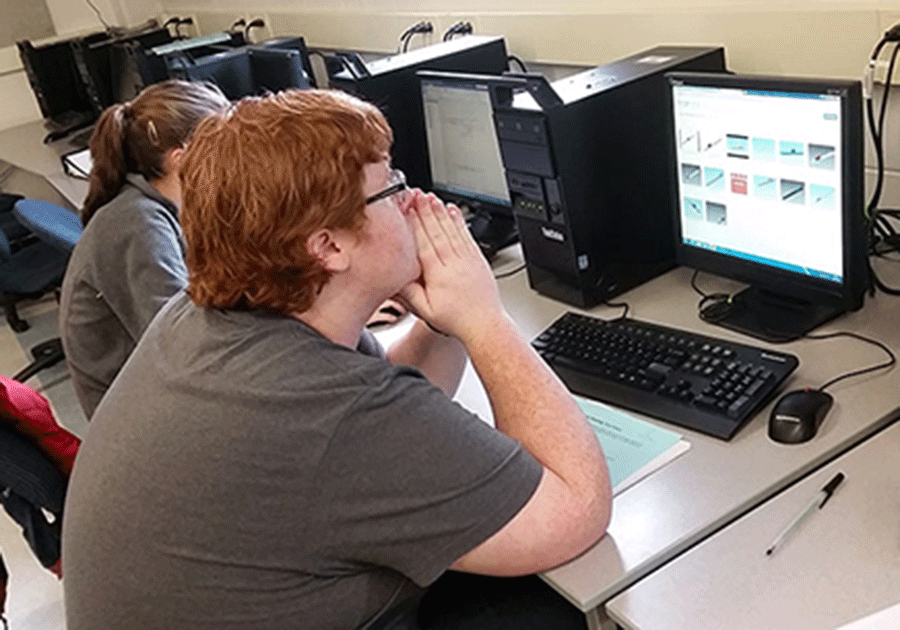Examining the value of exams
A typical scene the week before mid-terms
February 4, 2015
The No.2 pencils are being sharpened, and students are overloading their brains with information. Late night study sessions and lots of caffeine go into these exams. This is one of the most stressful times of the year, aside from finals, for students. This raises the question, are exams really necessary?
As students ponder if they will do well or not on their exams, the real logic behind midterms is unknown. Many say that these exams represent what a student has learned over the semester. If that were the case, then why, instead of having an exam at the end of each quarter, do we have one every semester? It is harder to retain knowledge over a long period of time, so why are exams so few and far between and why do they count more towards final grades?
The real purpose is to get students prepared for taking exams in college. Exams are everything for college students. Tests determine whether a class is passed or failed. This can be a nerve-racking concept for students as they go on to the next level of education.
In recent years, the midterm/final testing system is slowly diminishing in popularity in many colleges and universities across the nation. A recent study, conducted at Harvard University by Harvard Magazine, showed that just 259 out of the 1,137 of the courses offered at the school had scheduled exams. Professors have substituted exams for projects, presentations, and group presentations. Harvard changed its rules regarding exams as well, from requiring all professors to give exams, to professors needing to get permission to give exams.
Why does this matter for high school students then? The slowly disappearing, high-stakes, tests are raising questions about 21st-C. learning methods. How do students learn best? Do high pressure exams really judge the knowledge of students?
“These exams are a terrible representation of what we have learned throughout the semester. They force students to cram knowledge into their heads a week before the test and and we forget it as soon as the exam is over,” said Alexander Cate ‘15.
According to Linda Serra Hagedorn, a professor at Iowa State University, “The better the approach is to have a more holistic approach to learning where it’s smaller increments, where one learns in steadier and smaller increments.”
Another study, conducted at Richard J. Daley College in Chicago, which focused on 1,500 students taking algebra, showed that smaller, more frequent assessments were better. Students who took weekly cumulative quizzes during a semester did better than students who took the regular exams.
If colleges are getting rid of exams, then why don’t high schools follow? There is proof that high stakes exams like midterms and finals do not properly represent the knowledge a student has acquired over a semester. They add more stress to the already stressful lives of hardworking high schoolers. They are becoming obsolete in higher education, which is the reason why we take them to begin with. Should exams be cut or kept? These questions are being asked by education professionals across the United States and something needs to be done if education is to improve.













